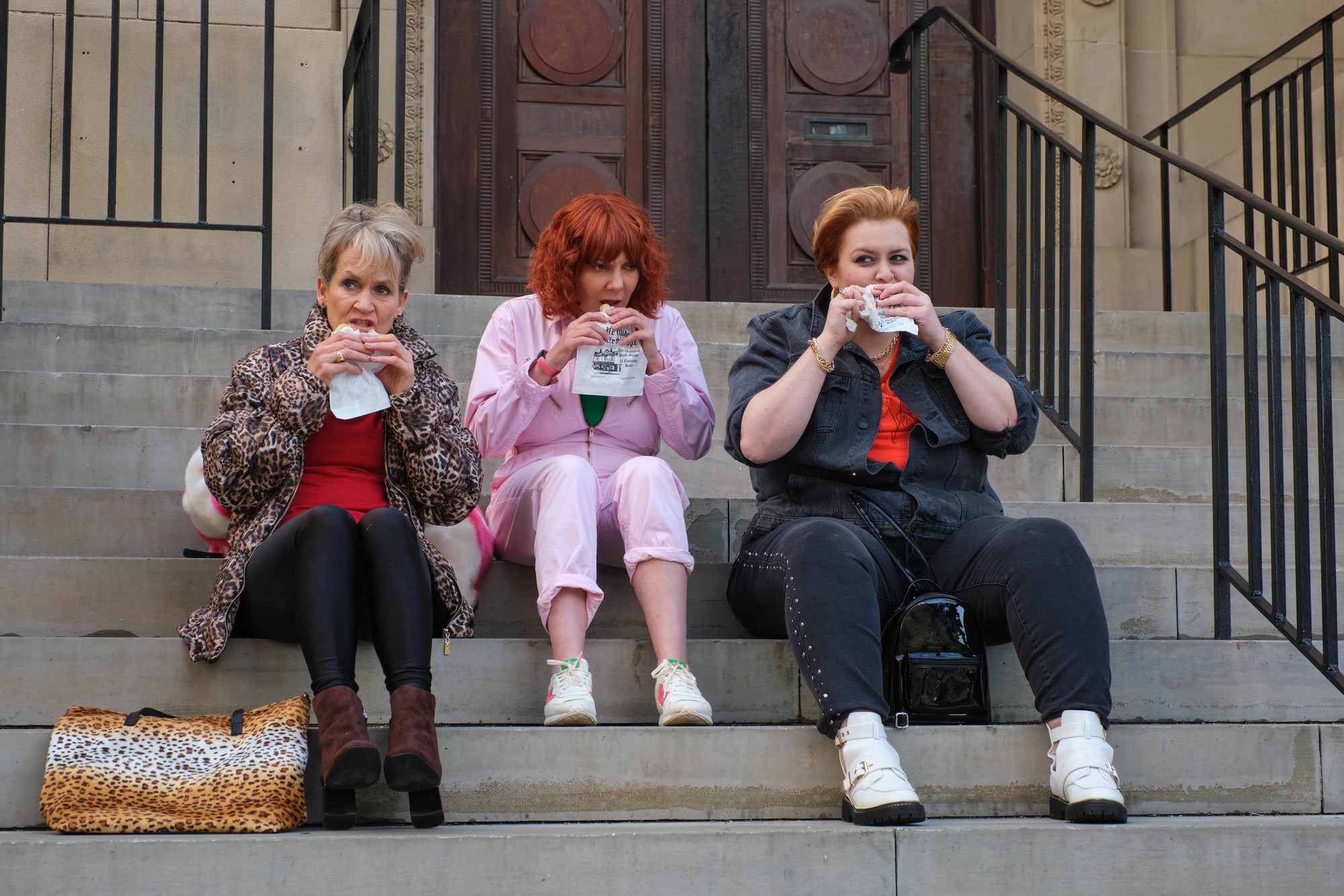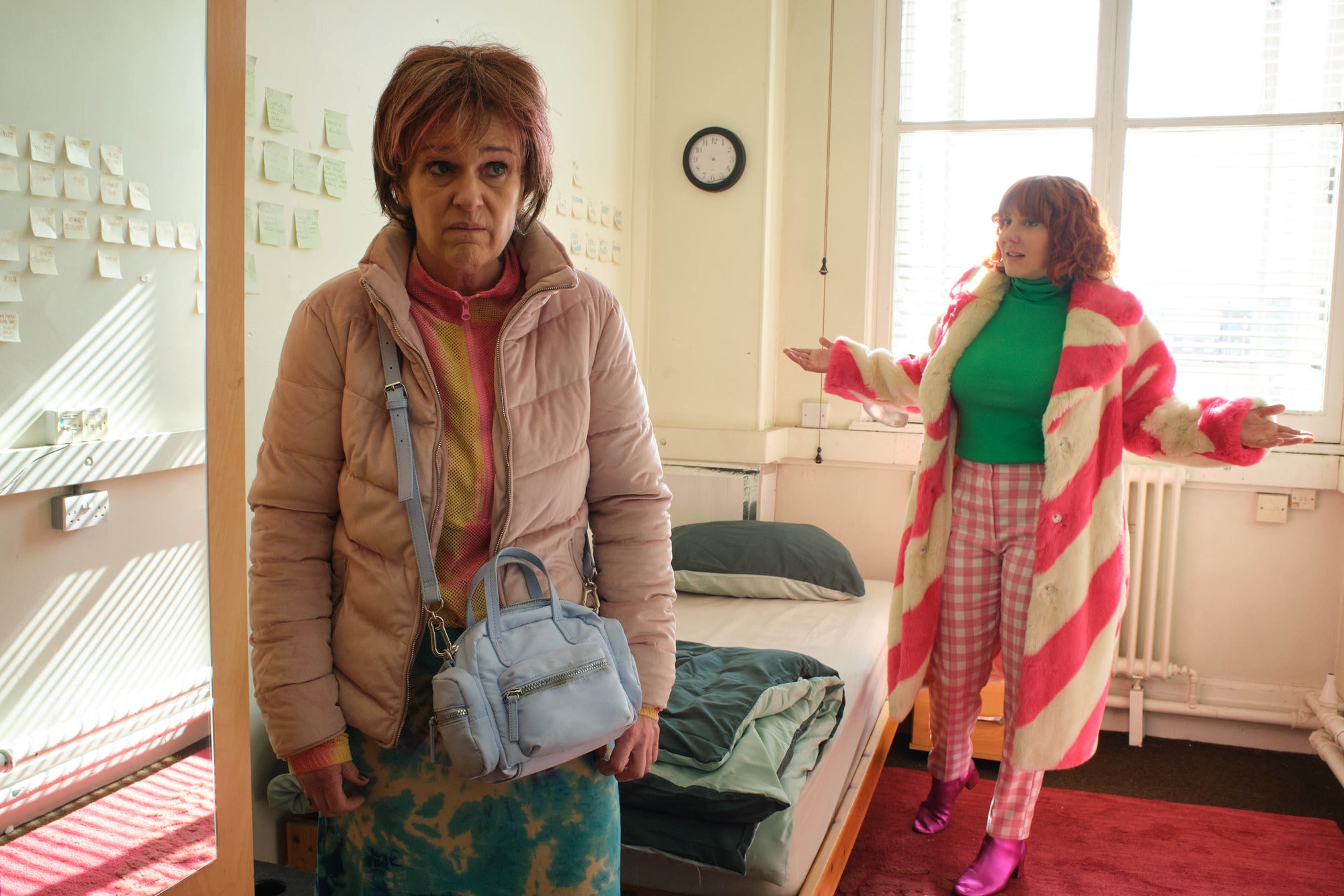Sophie Willan: ‘Most people have had some form of mental health issues in their families’
The comedian won a Bafta for the pilot of ‘Alma’s Not Normal’. Now, as a full series arrives on BBC Two, she talks to Isobel Lewis about the way trauma undermines social mobility, and wanting care-experienced people to feel seen in her show


Your support helps us to tell the story
From reproductive rights to climate change to Big Tech, The Independent is on the ground when the story is developing. Whether it's investigating the financials of Elon Musk's pro-Trump PAC or producing our latest documentary, 'The A Word', which shines a light on the American women fighting for reproductive rights, we know how important it is to parse out the facts from the messaging.
At such a critical moment in US history, we need reporters on the ground. Your donation allows us to keep sending journalists to speak to both sides of the story.
The Independent is trusted by Americans across the entire political spectrum. And unlike many other quality news outlets, we choose not to lock Americans out of our reporting and analysis with paywalls. We believe quality journalism should be available to everyone, paid for by those who can afford it.
Your support makes all the difference.‘Comedy is a really good vehicle for having really candid conversations about things that could be quite difficult with an optimism and an anarchy,” Sophie Willan says. The comic has seen more than her fair share of difficulties in her lifetime – a childhood in the care system, her mother’s mental health problems, time spent working as an escort – but there’s an ever-present positivity as we speak over Zoom from her home in Salford. It’s a feeling equally evident in her new semi-autobiographical sitcom Alma’s Not Normal, which begins on BBC Two this week. Among the current TV landscape of comically toned dramas, such as Fleabag, I May Destroy You or After Life, this feels more like a classic “feel good” comedy, mixing slapstick with sober subject matter.
The series centres on thirtysomething Bolton native Alma Nuttall, who’s never had a proper job but dreams of being an actor. “I feel like I’ve been born in the wrong social bracket. I could have been a baroness or a Kardashian,” she laments, shovelling a Pot Noodle into her mouth. Her relationship’s come to an end and she’s leaning on Leanne (Jayde Adams), her best friend who’s blessed with a constant stream of admirers thanks to her exotic accent (Bristolian). And then there’s her oh-so-complicated family. Grandma Joan (Lorraine Ashbourne) is a chain-smoking third-wave feminist, while her estranged mum Lin (Siobhan Finneran) is coming to the end of her sectioning after struggles with mental health issues and drug addiction.
Alma’s Not Normal has been, to put it bluntly, a long time coming for Willan. With a script first commissioned in 2014, it took an Edinburgh Comedy Award nomination and winning the BBC’s inaugural Caroline Aherne Bursary in 2018 to become a reality. When the pilot was (finally) released last spring, it earned glowing reviews, with The Guardian’s Lucy Mangan calling it “bleak” and “brilliant”. It also won Willan a Bafta – no mean feat for a half-hour pilot. The announcement came in while filming the full series and she went “absolutely ballistic” running around like a “wild thing”.
Among the current TV landscape, Alma’s Not Normal certainly shares DNA with the slate of recent shows focused on mental health, often starring their female creators. Willan points to Aisling Bea’s This Way Up, Daisy Haggard’s Back to Life and non-binary comic Mae Martin’s Feel Good, adding: “I don’t know if before Fleabag you would have got as much confidence in women telling their one-woman story.”
But even compared with those series, the struggles presented in Willan’s work are particularly heavy. Things get more serious as we learn about Alma’s experience in the care system, something Willan drew from her own experiences restlessly growing up in and out of foster care while her mother struggled with heroin addiction. As much as we talk about telling new stories on screen, this show highlights just how under-represented the accounts of care-experienced people are.
In episode five, Alma gets her records (childhood reports from her social workers) back, something that happened to Willan when she was 23. She wanted to depict this experience in an “honest and authentic” way, she says, showing how it’s “really destabilising”, without being “the end of the world”. “The last time I saw it on screen was the Joker and then he went on a killing spree,” she says. “It’s always very dramatic and harrowing. I wanted to share that story with Alma, be quite open about how difficult it can be, but also with optimism, because actually you are OK.”
It’s not just in front of the camera that Willan is determined to improve visibility for care-experienced people. In 2015, she founded Stories of Care, a nonprofit working to get care leavers into the creative industries. A similar paid-training scheme ran on Alma’s Not Normal, spanning all elements of the show’s production. For an industry so known for its “who knows who” mentality, it was a radical act.

Willan lights up when talking about the programme and its ability to provide the participants with the crucial first step and continued development opportunities needed to get their foot in the door. “I do think it’s important to be changing the industry from the inside, isn’t it?” she says. “There aren’t many opportunities for them to get in the industry; there isn’t the bank of mum and dad.” She had a similar commitment to involving local people in the production and held open auditions – after all, she says, Bolton is a “naturally funny place”, so why wouldn’t you?
While these proactive schemes are something she’s very proud of, Willan’s keen to point out that “if there were more opportunities and there was more diversity in general, we wouldn’t need these almost token bursaries or charities”. This sense of a systematic lack of support is one the show explores: Alma discusses in one scene the impact of the Conservative austerity programme on mental health services. “It all went wrong for mum when the government brought in the point-scoring system for disability,” her voiceover explains, a smugly smiling David and Samantha Cameron flashing on the screen.

Watch Apple TV+ free for 7 days
New subscribers only. £8.99/mo. after free trial. Plan auto-renews until cancelled

Watch Apple TV+ free for 7 days
New subscribers only. £8.99/mo. after free trial. Plan auto-renews until cancelled
It’s a bold statement about the real-life impact of Tory rule, but one Willan presents without judgement, allowing viewers to draw their own conclusions. “I don’t really give an opinion on it, I just said this is what happened,” she says. “I want to present these political points through the person-focused storyline and never really give a decisive opinion… and let the audience come to that themselves.”
The impacts of poverty play out between the three generations of Nuttall women, driving them apart after decades of struggle. “Most people have had some form of mental health issues in their families… [and] actually what bonds you together is having a laugh about it,” Willan says, pointing out how both Fleabag and This Way Up similarly focus on the connections between sisters. “Things can get really dark… those female relationships in families are complicated, but laughter’s what connects us all.”

In one scene, we see Joan discuss the intergenerational effects of poverty and how dauntingly inescapable it all feels. “I never wanted to be a mother,” she tells Alma, sitting on a bench in a leopard-print puffer jacket and matching tights. “I wasn’t interested in children. Motherhood just happened to me.” Poverty isn’t just a class issue, Willan points out, but a gendered one too.
“My grandma, she gave birth to my mum, there was no contraception or anything at that time so that’s what she had to do. My mum, there’s some postnatal depression there but it was really under-diagnosed then because it was the Eighties and nobody cared in that way… When the trauma’s in place, even though you might get some social mobility, you kind of end up back where you started.” She pauses. “I’ve been lucky that I did, in the same way [as] Alma, I kind of broke free from that. Moved to Manchester, did the tour, went acting, didn’t get pregnant, went on the implant. Did lots of things for me.”
Going forward, Willan hopes to focus on telling other underrepresented stories. There’s talk of setting up a production company with poet Lemn Sissay, who also came through the care system – albeit from a “very different background”. “It’s all about making sure we’re telling stories that we don’t see on our screens but that should be on our screens,” she says, suggesting that there could be a whole franchise of Not Normal narratives. With Alma, at least, she wants care-experienced people to feel seen and motivated by the series. “I hope they come away feeling charged up and full of joy, amid all the other bits that come up from it,” she says. “I hope that care leavers love it and think: ‘Yes, I see elements of me there and I’m alright.’”
Alma’s Not Normal begins Monday at 10pm on BBC Two



Join our commenting forum
Join thought-provoking conversations, follow other Independent readers and see their replies
Comments